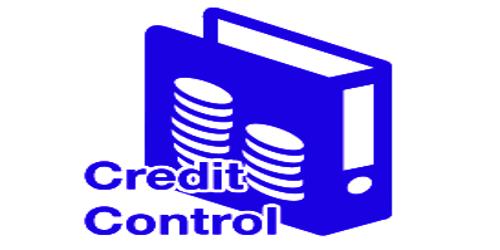Credit control is the system used by a business to make certain that it gives credit only to customers who are able to pay, and that customers pay on time. Credit control is part of the financial controls that are employed by businesses particularly in manufacturing to ensure that once sales are made they are realized as cash or liquid resources. It might also be called credit management, depending on the scenario under review.
Credit Control is a critical system of control that prevents the business from becoming illiquid due to improper and un-coordinated issuance of credit to customers or even lending in a financial institution. Credit control has a number of sections that include – credit approval, credit limit approval, dispatch approvals and well as collection process.
Credit control center on four primary factors:
- Credit period: Which is the length of time a customer has to pay
- Cash discounts: Cash discounts present purchasers an incentive to pay in cash more quickly.
- Credit standards: Includes the required financial strength a customer must possess to qualify for the credit.
- Collection policy: Measures the aggressiveness or relaxed policy in attempting to collect slow or late paying accounts
Techniques of Credit Control –
The central bank is the leader of the money market. It controls the volume of credit for maintaining monitory stability. The credit money is important of the total money supply in the country. The creation of credit beyond desirable limit loads to increase in the prices, imports and a decrease in exports. The result will be an unfavorable balance for payment. The purposely of the credit control are given below:
- Stability of internal prices.
- Stability of the foreign exchange rate.
- Promoting high employment.
















